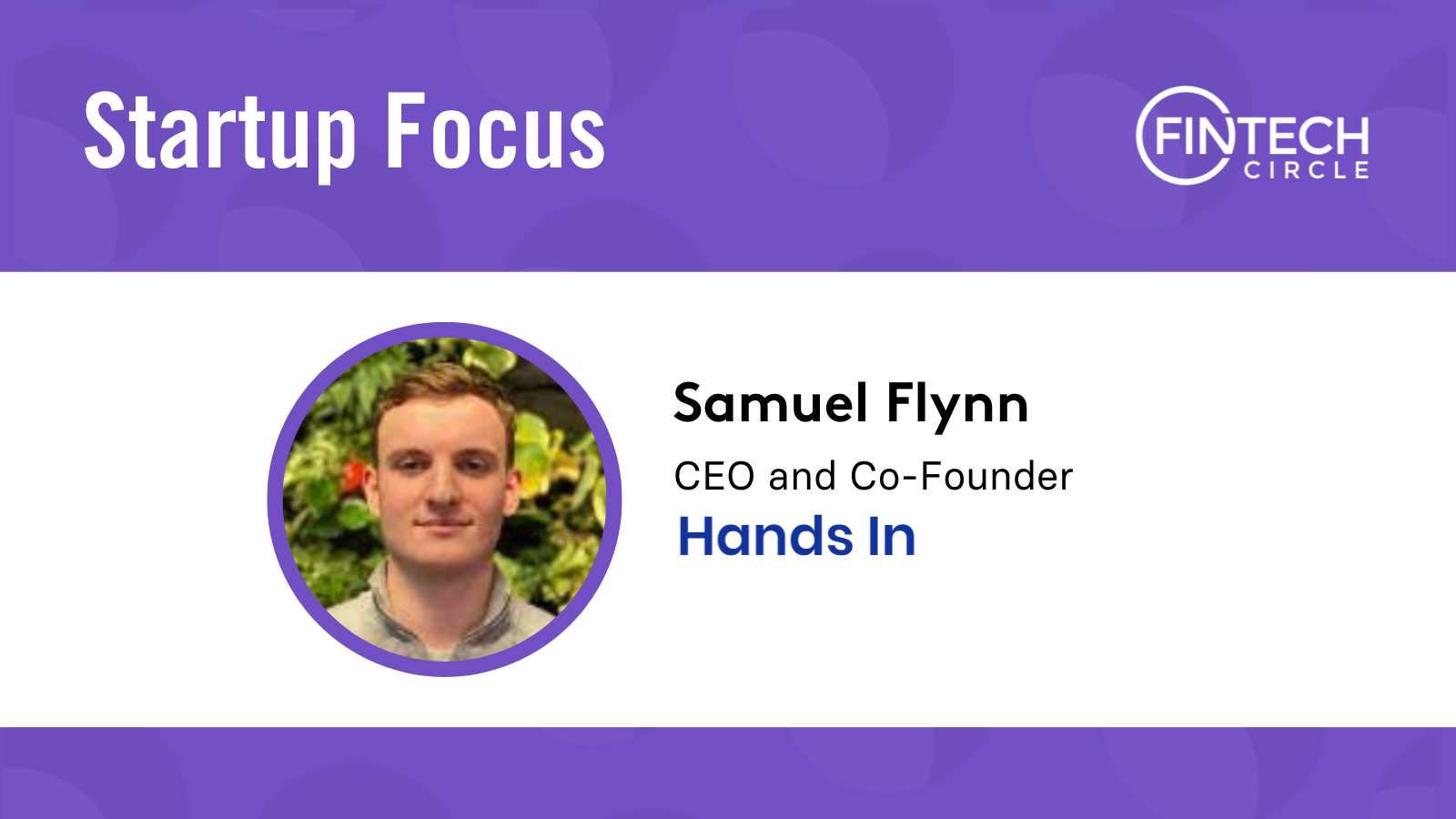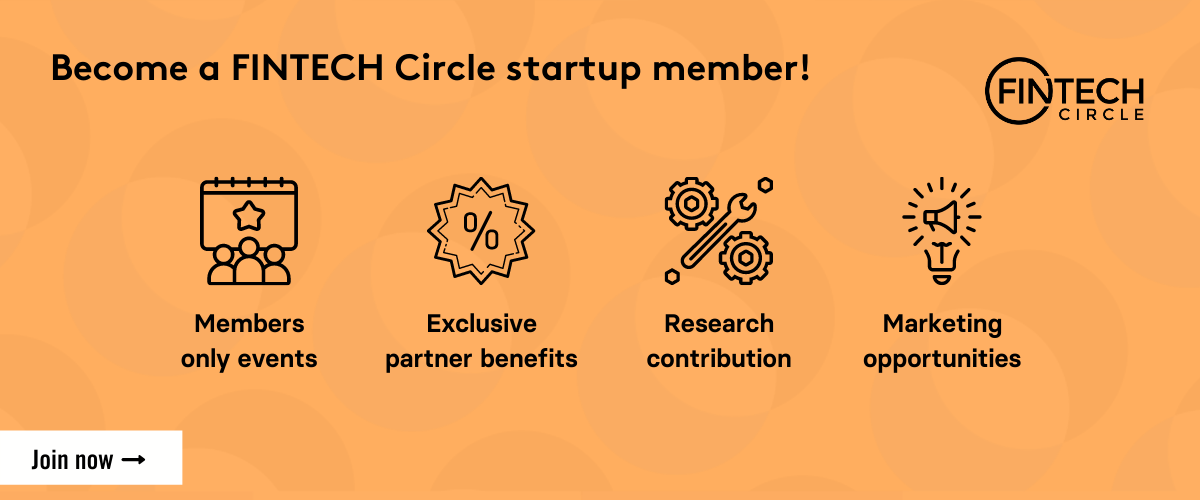Startup Focus: Hands In

Date: 28 April 2023
Author: FINTECH Circle
Group Payments offers the opportunity for merchants to increase sales however 99% of merchants do not have the technical resources to build a solution.
How would you describe your business in one sentence?
We deliver a simple-to-use set of payment services that enable online retailers to enable groups to checkout on their site, integrated directly with their existing acquiring/payment gateway infrastructure.
Tell us why your company is a game changer for our industry?
Current payment methods limit customers to single people paying when purchasing goods and services as a group online. This forces one member to pay the full amount upfront and have to collect and chase friends for all of the money. This can result in the retailer losing the sale or a lot of hassle for the lead person in the group.
Further, in the current economic climate, many Millenials cannot afford to ‘upfront’ the cost for all their friends. The retailer also only captures data on the lead booker, missing cross and upsell opportunities.
Hands-In provides a simple-to-use API that enables retailers to enable groups to checkout on their site, integrated directly with their existing acquiring/payment gateway infrastructure.
Customers have the ability to select a white-labelled ‘Split Payment’ button at the checkout and split the basket between the group equally or by item, inviting all group members into the transaction, and enabling each customer to pay into the group simultaneously.
No money is taken from anyone in the group until everyone has opted in and confirmed their participation. This delivers incremental sales for the retailer whilst reducing e-commerce friction for groups paying online.
Hands In are uniquely positioned in the market as the only retailer-focused group payment solution. The consumer-based solutions, unlike Hands In, still require one person to upfront the payment and then utilise their services to recollect the payment into one bank account or pot and then pay on one card.
Hands-In eliminates the requirement for anyone to upfront the payment ever again and shortens the time frame for payment completion by enabling the group to transact on-site.
Payment aggregators (Acquirers/PSPs/Gateways) are yet to add this functionality given building on top of complex legacy systems is difficult, costly and time intensive. Further, almost no merchant has built it themselves for the same reason.
Hands In provide the plug-and-play alternative, partnering with aggregators to enable the functionality on their checkout page for merchants across e-commerce.
WHAT HAS BEEN YOUR BIGGEST ACHIEVEMENT TO DATE?
Hands In have already started to demonstrate why we will be the leading provider of group payments infrastructure worldwide. Our Key Achievements include:
- Partnering with a number of OTA’s, Airlines and Ticketing platforms, both in SMB and the large enterprise market.
- Partnered directly with a number of acquirers, gateways and orchestration platforms.
- Winner of best start-up innovation at the Merchant Payment Ecosystem.
- Voted in the top 100 fastest-growing payment startups in the UK by Finance Pill
- Backed by investors from Go Cardless, PayU, Free Trade and Calm.
- Since Q4 2022 launch, converted 100% of payments on checkouts above 24HR and seen an 82% conversion rate improvement below 24HR’s, growing volumes monthly by an Avg. of 27%.
What has been the greatest challenge leading a start-up so far?
The greatest challenge of leading a start-up so far has not been leading the startup itself it’s more been the battle with me whilst leading the start-up.
For example, on a bad day at work, the production server goes down and the client has just churned.
It’s not those events that have made me stressed or unhappy it’s typically just my reaction. As stress is just a perception but can become very real when pilled up on top of one another and judgement becomes clouded.
I could look at that event in another way and say…
The production server going down and client churning give me and the team a chance to learn how to do better and make the product more sticky. That opportunity is something to be grateful for because you’re constantly improving.
I try to mitigate this challenge by just writing down how I’m framing different events both in a positive and negative light to help me and the team create the correct outcome.
What is your typical day like?
I operate my time-based in concentrated time blocks.
- Up at 6 AM and in the office by 7 AM.
- 7 AM-12 PM, Tackling the highest priority objective inside the business (Client contracts, fundraising, product launch etc)
- 12 PM – 1 PM Gym
- 1 PM-5 PM Meetings with clients, investors, team members etc.
- 5 PM-6 PM If I’m in the office, I will head home whilst listening to a podcast but If I am working from home Break like to read, check out what’s going on with the world etc
- 7 PM-10 PM Working on more creative projects (practising for pitches, building/editing decks & answering emails etc.)
Then I fall asleep to do the same thing all over again the next day.
WHAT is the biggest lesson you’ve learnt from your fundraising journey?
So far, Hands have raised close to $500K, in just over a year but within that experience had plenty of failures and things that have worked out along the way. Here are my do’s and don’ts.
Do’s:
- Prepare two pitch decks; 1) The door opener deck, 10-12 slides, explaining your proposition in the overview to get investors to take that initial call 2) The door closer deck, 20-25 slides, something that you’ll walk the investor through on call, to illustrate you know what you’re talking about and garner their intrigue.
*They are being pitched to all the time, you only really get one shot with these types of things, so make it count. - Try to be likeable, your goal of the first call especially if you’re early is not to sell them the business it’s just to sell them on you. If you like someone, you’re more likely going to want to keep the conversation going than you less like them right? This is very important and often overlooked. Some good reads will be; How to win friends and influence people
- A warm intro is far more powerful than a cold outbound, it’s an instant conversation starter that lightens the mood. E.g. “Oh you know this person, how do you know him/her? We met him/her by this etc” You’re ‘warming this person up to you. I’d suggest building a network list of everyone you know and reaching out to them to make introductions for you. if this is a person of high status/value, even better.
- Create FOMO, which you’ve probably heard a million times but it’s often true. The easiest way to do this is that I’ve seen via an investor newsletter but it HAS to be monthly otherwise no momentum will build. Showcase to them that you’re growing and people are interested and there is a deadline for this interest e.g. Round close by end of the tax year
- Nothing can be sold without a good story behind it but anything can be sold with a good story behind it, so tell great stories, it might not feel like you have the most compelling story right now because you’re too early, maybe too young etc but trust me you do and figuring that out is what will make you most compelling. Ask yourself questions like, why would people find me and this concept interesting? How can I make it relate to them? What’s interesting about it etc.
Don’ts:
- Do not pitch without a deck, people’s attention spans are limited, try to be memorable and emote their feelings to want to talk to you again
- Do not emotionally react to negative feedback, as a founder it’s incredibly difficult to manage your emotions especially whilst running a business and trying to liveable life but keeping cool in times of real pressure is what will really define you.
- If someone gives your criticism on your pitch, listen and apply the parts you think should be applied but move on.
- Rubbish terms sheet comes through, regulate your emotions, and read through it with grace and write out how you think you can come to a conclusion
- Give up, never ever ever give up, theirs is always another bus round the corner or a new movie in the cinema to watch. The same applies to fundraising and life in general. You never know who you’re gonna meet and how the next pitch will go, so keep pushing and find out.
Your advice to anyone starting out as an entrepreneur?
- Focus on providing value, not on the monetary gain for yourself. Money is just the exchange for providing value for a product or service, so the more value we create the more money we will likely make. When I started out, I always put myself first over the customer, the moment I switched was when things started to change.
- The fear of failure will push you closer to failure than failure itself. If you want to be successful in any feat you have to learn how to fail like a pro because the most successful people are standing on top of a mountain of failures with a few peaks of temporary highs they call success.
Fearing it will create stress, stress will lead you to make bad decisions and bad decisions ramp up your cycle to failure. Accepting this is a part of the game is the first part but then not holding an ego to be vulnerable around your peers and admitting your failures is the second. Both will help you not only be a better entrepreneur but a better person in life and that’s more important than any material success. - Build with people that share your interests. If you think about this mathematically, say you build with 5 people just like you versus just 1, you’re about to 5X the amount of learning, information and insight that you can apply to your own operations. Plus, this is a very long and lonely road so doing it with someone will make this much more enjoyable.
- Try not to associate your personal happiness with business success. Happiness and fulfilment are two very different things. Business success will fulfil you because you said you were gonna do and you do it but it will not make you happy.
Happiness is an internal thing that constantly needs to be worked on just like your business. Find the things that make you truly happy and try to carve out time for them within your life, it’s important you do this and more than likely make you a better entrepreneur.

Samuel Flynn, CEO and Co-Founder of Hands In
You can connect with Samuel Flynn on LinkedIn
